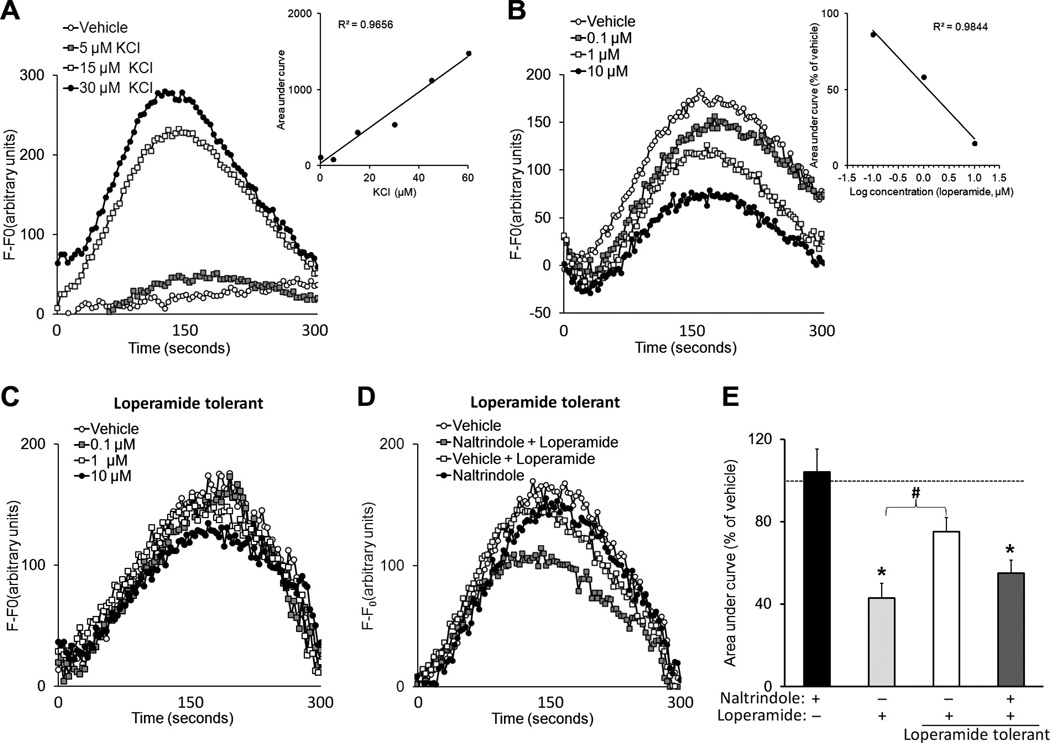Fig. 6.
Tolerance developed to loperamide inhibition of KCl-induced [Ca2+]i transients in cultured DRG neurons. (A) Using a fluorescent plate reader, KCl-induced [Ca2+]i transients in adult DRG neurons were measured in a 96-well Fluo-4AM assay. Inset: The dose dependence of KCl on [Ca2+]i transient size is shown by increasing area under the curve (AUC) with increasing KCl concentration. (B) A 5-minute pretreatment with loperamide (0.1 to 10 µM) dose-dependently reduced KCl (30 µM)-induced [Ca2+]i transients. Inset: Dose-dependent loperamide inhibition on KCl-induced [Ca2+]i transients. (C) To model loperamide tolerance in vitro, cells were incubated with loperamide (3 µM) for 72 hours. At 24 hours posttreatment, loperamide (0.1 to 10 µM) inhibition of KCl-induced [Ca2+]i transients was significantly decreased across all doses, as compared to that of loperamide-naïve neurons. (D) However, a 5-minute exposure to the delta opioid receptor antagonist naltrindole (1 µM) before application of loperamide (3 µM) restored loperamide inhibition of KCl-induced [Ca2+]i transients in loperamide-tolerant cells, suggesting a reversal of tolerance. (E) Bar graph showing naltrindole alone had no effect on KCl-induced [Ca2+]i transients, and loperamide (3 µM) inhibited KCl-induced [Ca2+]i transients in nontolerant cells, but not in tolerant cells. Pretreatment with naltrindole partially restored the diminished drug effect in tolerant cells. Data are expressed as mean + SEM. *P < .05 versus naltrindole group.

